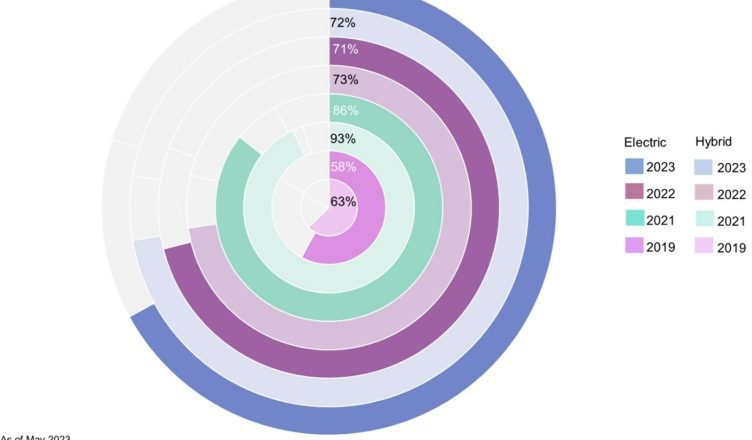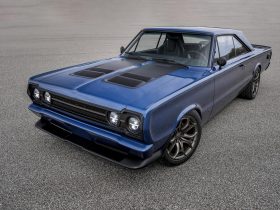Two surveys involving consumers and electric vehicles have shone some light on the market. As electric vehicle sales begin to slow, or at least fail to meet the grand expectations of pundits and carmakers, it’s important to understand why. A poll from S&P Global Mobility and another J.D. Power & Associates survey may help provide answers.
The S&P Global Mobility Survey (see more here) found that, despite EVs getting closer to price parity with some internal combustion vehicles, the affordability factor is still a problem. About 48 percent of the 7,500 survey respondents globally consider EV prices to be too high. Even after understanding the price premium and potentially lower back-end costs of electrics.
The survey, which is conducted annually, shows a dropping trend of consumer interest since a high recorded in 2021. The number of consumers who are willing to consider an EV is still high, but the trend has been consistently moving downward. Hybrids, meanwhile, have remained relatively consistent since 2019.
This consumer balk is further exacerbated by the fact that fewer than half surveyed believe that EV technology is really ready for the mass market. Even with knowledge of tax credits, benefits, and improved infrastructure, only 42 percent are considering an EV in their next purchase and 62 percent are waiting for the technology to improve.
J.D. Power’s latest Sales Satisfaction Index (SSI) Study has seen a flip in how consumers see their purchases. Low inventories and high markups blotted the SSI results for the past couple of years, leading to low consumer satisfaction in many markets. With inventories stabilizing and dealer markups becoming more rare, consumer satisfaction has trended upwards once again.
But not when it comes to electric vehicles. Consumers found that while internal combustion engine vehicle purchases have resulted in higher consumer satisfaction, EV purchases have not. Consumers in both premium and mass market segments of EVs trailed their combustion counterparts considerably when it comes to satisfaction with their purchase.
Overall satisfaction with mass market purchases scored 848 with combustion engine consumers and only 790 for EV buyers. The gap between the two is smaller in premium markets, with combustion purchasers scoring 866 versus the 831 of their EV cousins.
Over a third of the buyers cited dealerships not doing enough to make them feel comfortable with EV maintenance requirements and 11 percent were uncomfortable with EV charging processes and options. Key here is perception of salesperson knowledge on EVs, which many respondents cited as a problem.
Both internal combustion and EV buyers are still rating dealerships, the dealer experience, and vehicle purchases lower than they were pre-pandemic.
These two surveys, both key indicators of the automotive consumer market in both the U.S. and globally, are showing similar trends. Buyers are not as interested in electrics now that they are more commonly on the road and dealerships and, by extension, automakers aren’t doing enough to explain them to potential buyers. These are key factors limiting the EV market and a reason that many automakers are seeing a downturn in EV sales figures.
This opinion piece originally published on EVmeme.com.







